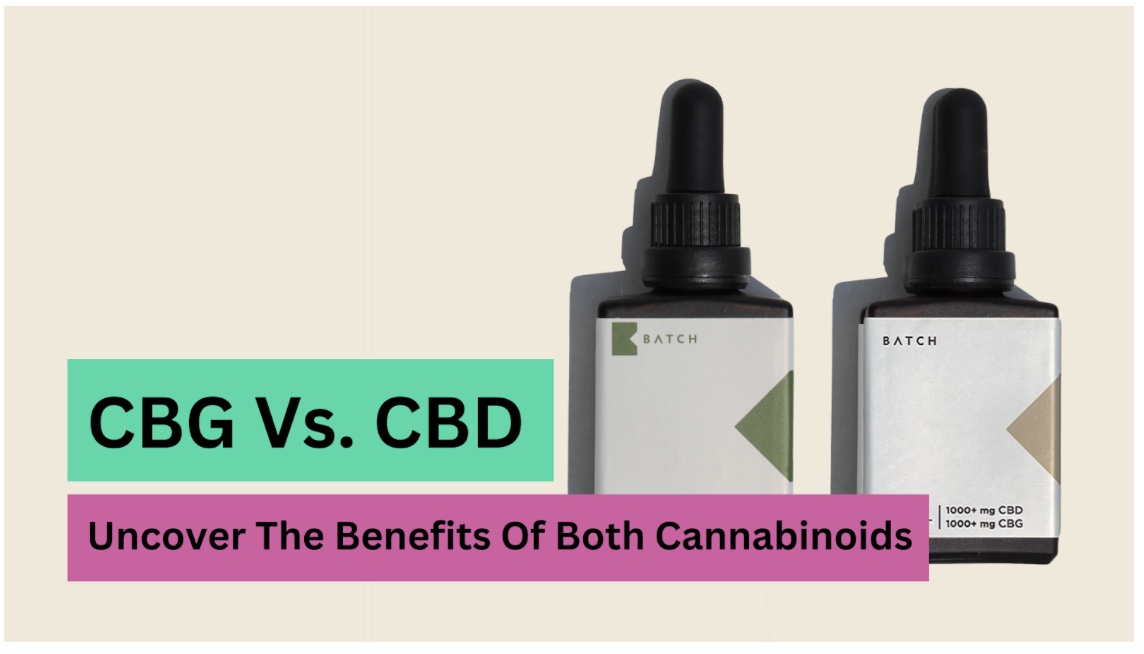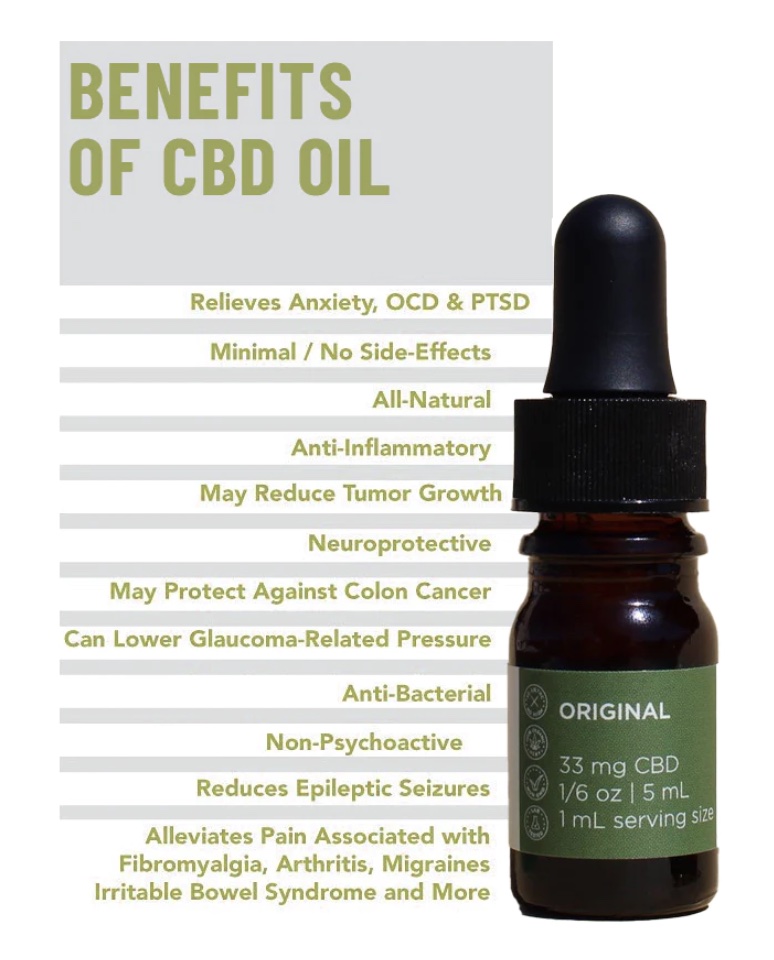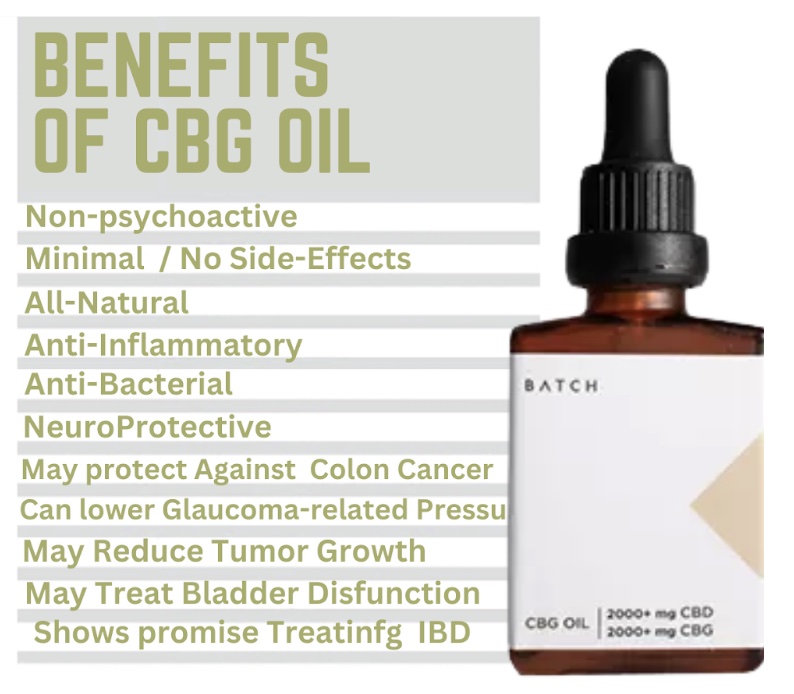
According to recent estimates, the global market for cannabidiol (CBD) is growing at a compound annual growth rate of 16.8%, and is expected to be worth a staggering $22.05 billion by 2030.1
The truth is that CBD has gained enormous popularity as a natural health supplement, particularly among people who live in jurisdictions where tetrahydrocannabinol (THC) is prohibited or in cases where people dislike THC’s psychoactive effects.
But the growth of the industry has bred innovation. This has led scientists to look for even more cannabinoids (chemicals found within the hemp plant) that could potentially be used to bolster overall health and wellness. One such cannabinoid is cannabigerol (CBG).
This article will explore the differences between CBD and CBG and look at their potential health benefits, side effects, and more. We will also discuss the differences between isolate, full-spectrum, and broad-spectrum CBD vs CBG products and explore their potential benefits.
For high-quality CBD and CBG products, check out our shop today!


What Is CBG?
Cannabigerol or CBG, like CBD, belongs to a group of substances naturally found in the hemp plant called cannabinoids (more specifically, plant-based cannabinoids or phytocannabinoids).
About 1% of the total cannabinoid content in hemp is made up of the chemical CBG, which is present in very small amounts in hemp. While cannabinoids like CBD and THC come from fully grown plants, CBG is produced from younger hemp flowers.
How Does CBG Work?
CBG is a non-psychoactive cannabinoid found in cannabis plants. It is the precursor to other cannabinoids like THC and CBD and is thought to have a number of therapeutic benefits.
CBG impacts the endocannabinoid system, which comprises receptors located all over the body.2 These receptors regulate important functions like pain, inflammation, mood, and appetite.
When CBG binds to these receptors, the signs and symptoms of various conditions, such as pain, inflammation, and other symptoms, can be lessened.3
What Are The Pros Of Using CBG?
CBG is a non-psychotropic cannabinoid and has a variety of potential health benefits. Studies indicate that CBG has anti-inflammatory, antioxidant, and anti-anxiety properties.4
An advantage of using CBG is its potential to reduce inflammation, which is just one of its many advantages. CBG was found to reduce inflammation in the liver and intestines in a mouse study.3 This anti-inflammatory effect of CBG is thought to result from its capacity to reduce the production of pro-inflammatory cytokines, which are proteins released by cells that can cause inflammation.
Additionally, CBG might have antioxidant properties that help the body fight oxidative stress. Oxidative stress results from a mismatch between the body’s defense mechanisms against free radicals and their generation. Unstable molecules called free radicals can damage DNA, proteins, and cells, leading to various diseases, including cancer.
Finally, CBG has been found to have anti-tumor properties, which can help slow or even stop the growth of certain types of tumors.5 This can be especially beneficial for those with cancer or other serious illnesses.
What Are The Drawbacks Of Using CBG?
Although CBG has a lot of potential benefits, there might also be some drawbacks. CBG has not been the subject of as many studies as CBD, so there is still much to learn about its physiological effects. This is one of the most crucial things to keep in mind.
One of the main disadvantages of using CBG is that it can be difficult to find in its purest form. Since CBG is typically only present in trace amounts in hemp and cannabis plants, it is difficult to isolate the compound in its purest form. Therefore, it can be difficult to find products that contain enough CBG to be effective.
The possibility of drug interactions when using CBG is yet another drawback. Although it is unknown to interact with any drug, it might with some. Therefore, if you are taking any medications, it is crucial to consult your doctor before taking CBG.
Finally, CBG may have some side effects, although generally mild. When taking CBG, some people may experience dry mouth, dizziness, or low blood pressure.6 Additionally, you should be aware that CBG may interact with other medications, so consult your doctor before using it.
What Is CBD?
CBD is the most popular cannabinoid among modern consumers. Our bodies’ internal system (the endocannabinoid system) aids in the regulation of various physiological processes, including pain.
Being able to bind to these receptors while not having the same psychoactive effects as THC makes CBD special. Like THC, CBD is believed to have a number of advantageous effects on one’s health.
CBD is available in various forms, including tinctures, edibles, topicals, and more. It can also be combined with other compounds, such as THC, to create a more balanced effect.
CBD is non-intoxicating, so it is safe for adults, children, and pets. It is also legal in most countries, making it a popular choice for those looking for natural, safe relief from various conditions.

How Does CBD Work?
CBD interacts with the endocannabinoid system to help the body maintain homeostasis and regulate its processes. When CBD is ingested, it binds to the CB1 and CB2 receptors in the ECS. This binding triggers a cascade of reactions that can help reduce inflammation, anxiety, and even chronic pain.7
What Are The Pros Of Using CBD?
One of the many benefits of CBD is its ability to reduce inflammation. Since CBD was discovered to have strong anti-inflammatory properties, it has been used to treat various diseases, including arthritis and other inflammatory conditions, by reducing the pain and swelling they cause.8
Furthermore, it has been demonstrated to be effective in treating chronic pain, including that caused by fibromyalgia, MS, and other conditions.9
Studies have also demonstrated that CBD is effective in treating anxiety and depression. Studies show that CBD can help to lessen the symptoms of both conditions, including anxiety, restlessness, and difficulty concentrating.10
What Are The Drawbacks Of Using CBD?
There are a few things to think about when it comes to the drawbacks of using CBD.
First, although CBD is typically considered safe and non-addictive, there is still a shortage of knowledge regarding its long-term effects. It’s important to consult your doctor before beginning any CBD regimen because CBD can interact with some supplements and medications.11
Other minor side effects of CBD include dry mouth, drowsiness, and lightheadedness.12 Additionally, it may occasionally result in diarrhea, nausea, and changes in appetite or weight.13
Finally, although it is uncommon, some people may react allergically to CBD. An allergic reaction can cause pyrexia, dizziness, and respiratory difficulties.14
Stop taking CBD and consult a doctor immediately if you experience any of these signs.
Isolate Vs. Full-Spectrum
There are three main product categories for CBD and CBG: isolate, full-spectrum, and broad-spectrum. Each type has distinct advantages and disadvantages of its own.
Isolate products contain only isolated cannabinoids, such as CBD or CBG. Isolate products are the best option for people sensitive to other substances because they are the purest form of cannabinoids.
Full-spectrum products contain all of the compounds found in the hemp plant, including cannabinoids, terpenes, and flavonoids. These products are ideal for consumers who want to take advantage of the entourage effect, in which all elements of the hemp plant work together to have a stronger effect.
Broad-spectrum products are similar to full-spectrum products but do not contain THC. These goods are perfect for people who want to benefit from hemp’s health advantages without worrying about THC’s potential psychoactive effects.
It is important to consider your particular needs and preferences when deciding between isolate, full-spectrum, and broad-spectrum products. Full-spectrum CBG oil and broad-spectrum products are ideal for those who want to benefit from the entourage effect. In contrast, isolate products are best for those who only want to benefit from the effects of a single cannabinoid.
CBG Vs. CBD: Key Differences
The most obvious distinction between CBG and CBD is how they affect the body’s endocannabinoid system.
CBG targets the CB1 and CB2 receptors in the endocannabinoid system, whereas CBD targets the CB2 receptor. CBG will therefore have a quicker effect on the body, whereas CBD will have a more gradual one.
CBG is well known for having a stronger anti-inflammatory effect than CBD, in addition to helping to reduce pain and inflammation. This makes it a fantastic option for those who deal with inflammation and persistent pain.
And finally, CBD has been shown to be more effective than CBG at reducing the symptoms of psychosis. Because of this, it’s an excellent option for those with psychotic disorders.
While CBG and CBD interact with the endocannabinoid system of the body, their results and modes of action differ. It will be easier to decide which of the two cannabinoids is best for you if you are aware of their differences.

CBG Vs. CBD: Health Benefits
Combining CBG and CBD for health has a variety of benefits. Studies show that the combination of these two cannabinoids can have a variety of beneficial effects, including the ability to reduce anxiety, inflammation, and pain.15
CBG and CBD can enhance one another’s effects thanks to their synergistic interaction. CBD is well known for being an anti-inflammatory, whereas CBG has been found to have anti-anxiety properties. When taken together rather than separately, these two cannabinoids function as therapeutic agents more effectively.
Pain relief is one of the most popular applications for CBG and CBD. Studies have demonstrated that both cannabinoids can reduce pain and inflammation. Thus, they are a fantastic option for people suffering from chronic pain-causing diseases like fibromyalgia and arthritis.
Choosing Which One Is Better For You
CBG and CBD offer potential health benefits, but they are different compounds and work differently in the body. It is important to consider your individual needs and goals when making a decision.
CBD might be your best option if you’re looking for a substance that can reduce inflammation and pain. Since CBD has anti-inflammatory effects, it may help to lessen inflammation in the body. It is also well known for having calming and relaxing effects and can relieve stress, anxiety, and insomnia.
On the other hand, CBG might be your best bet if you’re looking for a substance that can aid in focus and mental clarity. As well as its potential to reduce anxiety and treat depression, CBG is well known for its capacity to improve mental clarity and focus.
When deciding which is best for you, it is important to consider your individual needs and goals. Consider what you want to achieve, and then research each compound’s potential benefits and drawbacks. Talk to your doctor or healthcare provider for their opinion, and then make an informed decision.
Final Thoughts
As we have seen, CBG and CBD are powerful compounds with potential health benefits. However, to reap these benefits, it’s important to get high-quality hemp products from a trusted source like BATCH!
We here at BATCH are dedicated to crafting excellent CBD, CBG, and other hemp-derived products that are organic, single-sourced (grown right here in Wisconsin), and lab-tested for quality assurance and peace of mind.
So, don’t wait any longer – shop now and reap the benefits of our powerful cannabinoids!
Sources:
- Global cannabidiol market size, share, industry analysis, 2030. Global Cannabidiol Market Size, Share, Industry Analysis, 2030. (n.d.). Retrieved from https://www.grandviewresearch.com/industry-analysis/cannabidiol-cbd-market#:~:text=The%20global%20CBD%20market%20size,USD%2022.05%20billion%20by%202030.
- Navarro, G., Varani, K., Reyes-Resina, I., Sánchez de Medina, V., Rivas-Santisteban, R., Sánchez-Carnerero Callado, C., Vincenzi, F., Casano, S., Ferreiro-Vera, C., Canela, E. I., Borea, P. A., Nadal, X., & Franco, R. (2018, June 21). Cannabigerol action at Cannabinoid CB1 and CB2 receptors and at CB1-cb2 heteroreceptor complexes. Frontiers in pharmacology. Retrieved from https://www.ncbi.nlm.nih.gov/pmc/articles/PMC6021502/.
- Kogan, N. M., Lavi, Y., Topping, L. M., Williams, R. O., McCann, F. E., Yekhtin, Z., Feldmann, M., Gallily, R., & Mechoulam, R. (2021, September 15). Novel CBG derivatives can reduce inflammation, pain and obesity. Molecules (Basel, Switzerland). Retrieved from https://www.ncbi.nlm.nih.gov/pmc/articles/PMC8467477/.
- KE;, N. R. R.-K. W. M. V. (n.d.). The pharmacological case for Cannabigerol. The Journal of pharmacology and experimental therapeutics. Retrieved from https://pubmed.ncbi.nlm.nih.gov/33168643/#:~:text=Studies%20indicate%20that%20CBG%20may,use%20of%20this%20unregulated%20phytocannabinoid.
- Lah, T. T., Novak, M., Pena Almidon, M. A., Marinelli, O., Žvar Baškovič, B., Majc, B., Mlinar, M., Bošnjak, R., Breznik, B., Zomer, R., & Nabissi, M. (2021, February 5). Cannabigerol is a potential therapeutic agent in a novel combined therapy for glioblastoma. Cells. Retrieved from https://www.ncbi.nlm.nih.gov/pmc/articles/PMC7914500/.
- Russo EB;Cuttler C;Cooper ZD;Stueber A;Whiteley VL;Sexton M; (n.d.). Survey of patients employing cannabigerol-predominant cannabis preparations: Perceived medical effects, adverse events, and withdrawal symptoms. Cannabis and cannabinoid research. Retrieved from https://pubmed.ncbi.nlm.nih.gov/34569849/.
- Capodice, J. L., & Kaplan, S. A. (2021, June). The endocannabinoid system, cannabis, and Cannabidiol: Implications in urology and Men’s Health. Current urology. Retrieved from https://www.ncbi.nlm.nih.gov/pmc/articles/PMC8221009/#:~:text=The%20endocannabinoid%20system%20is%20a,neurologic%20disorders%20such%20as%20epilepsy.
- Atalay, S., Jarocka-Karpowicz, I., & Skrzydlewska, E. (2019, December 25). Antioxidative and anti-inflammatory properties of Cannabidiol. Antioxidants (Basel, Switzerland). Retrieved from https://www.ncbi.nlm.nih.gov/pmc/articles/PMC7023045/.
- Berger AA;Keefe J;Winnick A;Gilbert E;Eskander JP;Yazdi C;Kaye AD;Viswanath O;Urits I; (n.d.). Cannabis and cannabidiol (CBD) for the treatment of fibromyalgia. Best practice & research. Clinical anaesthesiology. Retrieved from https://pubmed.ncbi.nlm.nih.gov/33004171/.
- Rapin, L., Gamaoun, R., El Hage, C., Arboleda, M. F., & Prosk, E. (2021, June 23). Cannabidiol use and effectiveness: Real-world evidence from a Canadian Medical Cannabis Clinic. Journal of cannabis research. Retrieved from https://www.ncbi.nlm.nih.gov/pmc/articles/PMC8223341/.
- Balachandran, P., Elsohly, M., & Hill, K. P. (2021, July). Cannabidiol interactions with medications, illicit substances, and Alcohol: A Comprehensive Review. Journal of general internal medicine. Retrieved from https://www.ncbi.nlm.nih.gov/pmc/articles/PMC8298645/#:~:text=As%20expected%2C%20CBD%20has%20been,acetaminophen%2C%20and%20substances%20including%20alcohol.
- Bellocchio, L., Inchingolo, A. D., Inchingolo, A. M., Lorusso, F., Malcangi, G., Santacroce, L., Scarano, A., Bordea, I. R., Hazballa, D., D’Oria, M. T., Isacco, C. G., Nucci, L., Serpico, R., Tartaglia, G. M., Giovanniello, D., Contaldo, M., Farronato, M., Dipalma, G., & Inchingolo, F. (2021, August 3). Cannabinoids drugs and oral health-from recreational side-effects to medicinal purposes: A systematic review. International journal of molecular sciences. Retrieved from https://www.ncbi.nlm.nih.gov/pmc/articles/PMC8347083/.
- Iffland, K., & Grotenhermen, F. (2017, June 1). An update on safety and side effects of Cannabidiol: A review of Clinical Data and relevant animal studies. Cannabis and cannabinoid research. Retrieved from https://www.ncbi.nlm.nih.gov/pmc/articles/PMC5569602/.
- Huestis, M. A., Solimini, R., Pichini, S., Pacifici, R., Carlier, J., & Busardò, F. P. (2019). Cannabidiol adverse effects and toxicity. Current neuropharmacology. Retrieved from https://www.ncbi.nlm.nih.gov/pmc/articles/PMC7052834/.
- Mammana, S., Cavalli, E., Gugliandolo, A., Silvestro, S., Pollastro, F., Bramanti, P., & Mazzon, E. (2019, November 18). Could the combination of two non-psychotropic cannabinoids counteract neuroinflammation? effectiveness of cannabidiol associated with Cannabigerol. Medicina (Kaunas, Lithuania). Retrieved from https://www.ncbi.nlm.nih.gov/pmc/articles/PMC6915685/.
Advertising disclosure: We may receive compensation for some of the links in our stories. Thank you for supporting LA Weekly and our advertisers.
